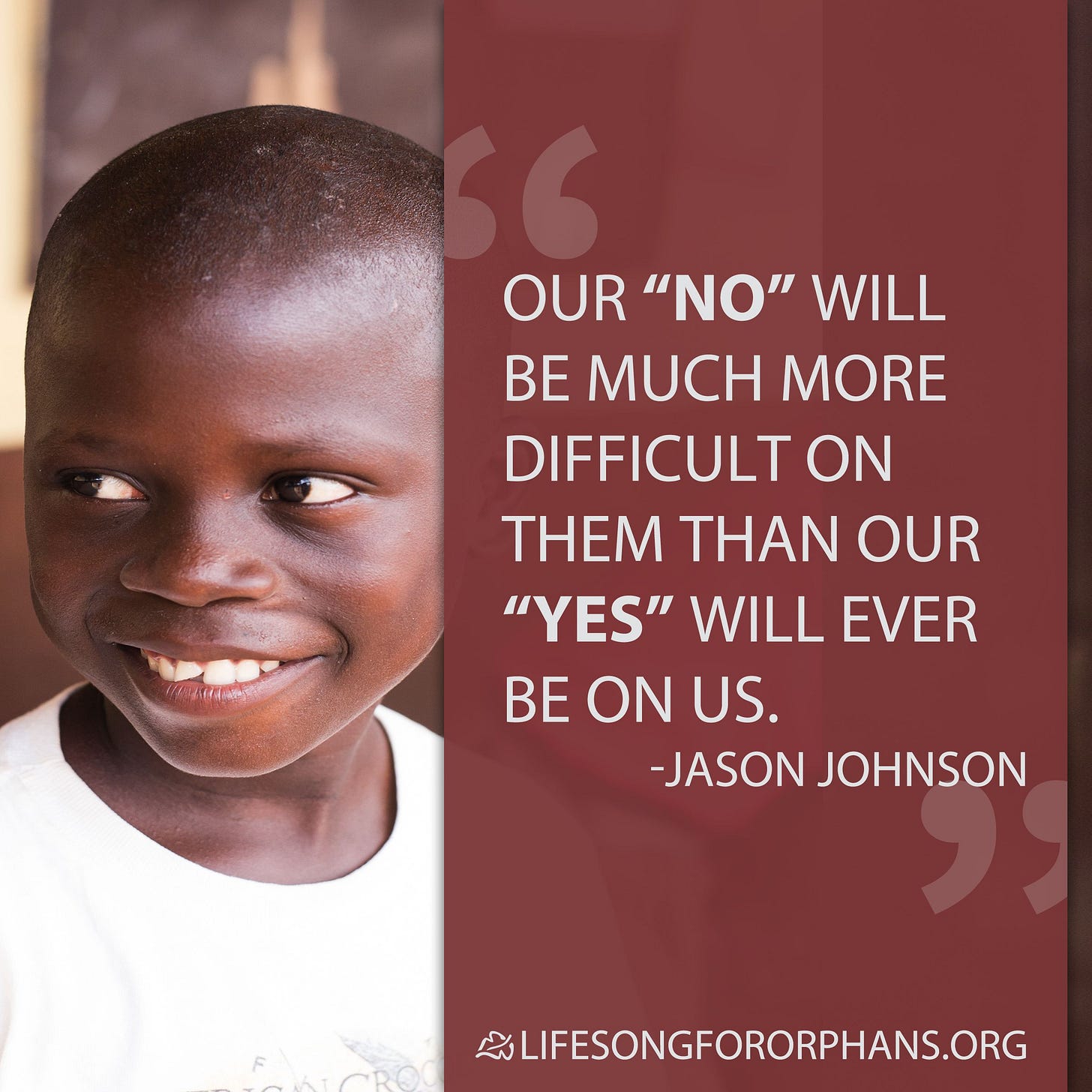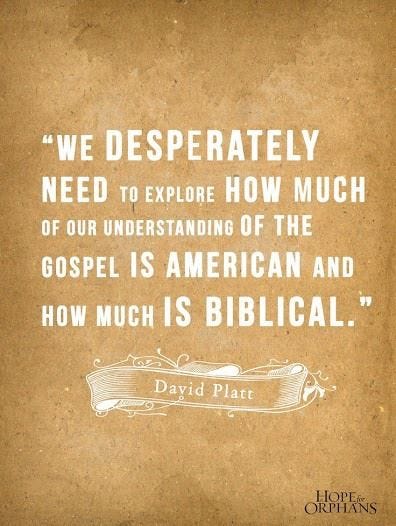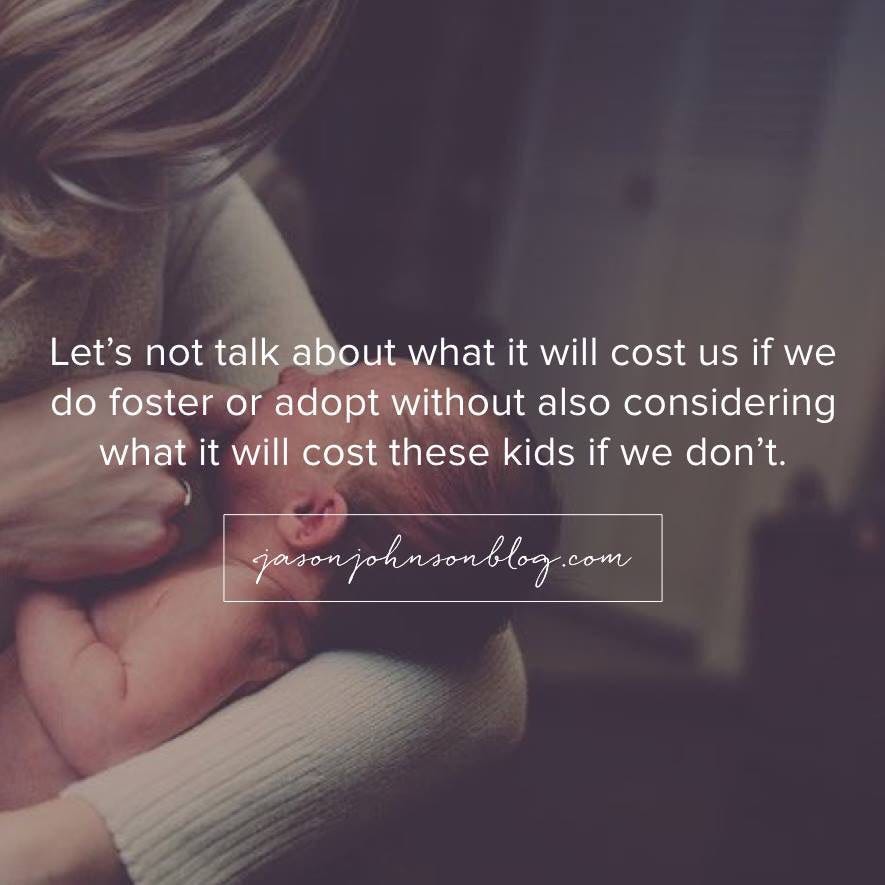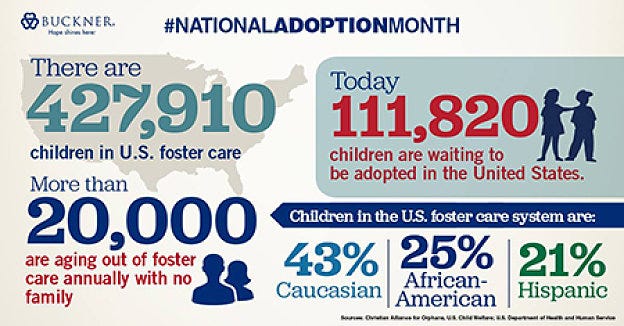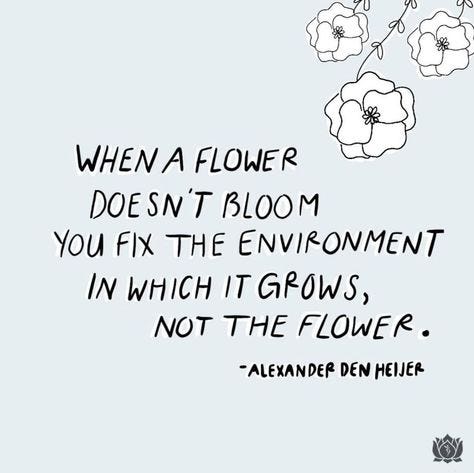10 Common Myths About Foster Care
Whenever someone finds out we are foster parents, we typically hear the following responses: “You’re a better person than me.” “I could never do that.” “Wow. You’re amazing!” “The world needs more people like you.”
When I respond in ways that challenge those statements, I’m typically presented with lots of myths about foster care. Let me address each of these statements and myths as clearly as I can.
Note: In responding, I am doing so from a Christian world-view, speaking to people who call Jesus their friend. If that label doesn’t describe you, there are probably a few of my responses you can ignore.
1. “You’re just a better person than me.”
FALSE. We are not superheroes. We are just as messed up as the next family. We make mistakes all the time. We say things we shouldn’t. We do things we wish we hadn’t. It doesn’t take superheroes to care for other peoples’ kids. It just takes people who say yes and then follow through.
2. “I could never do that.”
FALSE. You’re currently choosing not to—and that’s fine, because not everyone should—but you probably could if you wanted to.
So let’s be truthful about what this statement usually means: “The thought of doing that makes me uncomfortable.” OK… but there’s very little about being a Christian that makes us comfortable, at least not on this earth. Our relationship with God doesn’t mean we will always live in comfortable houses with comfortable jobs and comfortable schedules. We’re called to love our neighbors and our community and especially the orphans around us. Loving someone typically isn’t super comfortable all of the time. In fact, it can get downright messy a lot of the time. But it is so worth it. You just need to say yes.
3. “Not everyone is called to care for orphans.“
FALSE. While it’s true the Bible says some are called to teach, others to preach, others still to heal, and so on (Ephesians 4:11), it is clear that the very act of loving God is inextricably connected to caring for those who are in need. (James 1:27, Psalm 82:3, Deuteronomy 24:19-22, Isaiah 1:17, and Matthew 25: 39-46) I love how Jason Johnson reframes James 1:27 to read like this: One of the purest and most undefiled demonstrations of the gospel is to move towards hard places and broken people, not away from them. This is *not* a calling for a few, but rather a description of all of Jesus’ friends. Two completely different things. (Some people get callings, but everyone who calls himself a friend of Jesus should want to live out this description.)
I completely understand not everyone is in a position to open their home to strangers. Really, I get it. (And not everyone should.) But, with less than .01% of families doing foster care, on average, I suspect there are someChristians who are ignoring God’s prompting in this regard. Statistically, we only need 7% of professing Christians worldwide to care for kids like this, to wipe out the need completely! But if you have prayed about it, and feel certain God isn’t calling you to host foster kids, then I’m sure he’ll show you another way you can care for them. I then only ask you to join me in praying that those who are supposed to help in this way, do.
4. “Foster care and adoption are the only way to care for orphans.“
FALSE. There are lots of ways to help. And you don’t even need to go beyond our borders. Today, in the U.S., foster kids are pretty much the local orphans of our time. So, any way we can support their care is definitely honoring God’s description of his church.
Encourage/support a foster/adoptive family near you. This type of support is absolutely invaluable and so appreciated! Here are just a few of the ways you might jump in:
babysit to give the parent(s) a night out
help them meet licensing guidelines in the home (such as installing railings or furnishing a room)
gift a family membership to a local museum or amusement park
bring a meal
help with homework
provide transportation to/from appointments
do the laundry
get fingerprinted so you can become an approved alternate caregiver to help give foster parent(s) regular breaks
learn about the impacts of trauma, then take the parent to coffee/dessert and offer a compassionate listening ear
Encourage/support a young adult who has aged out of foster care. The stats for kids who age out of the system without any long term connections are staggering. Imagine how you would have fared at 18 if you had no housing, income, family, or safety net, and you get a picture of the uphill battle they are facing. But there are many organizations trying to stand in the gap! Contact your local DSS for ideas, or look for a local organization like this one in San Diego or this one in Atlanta.
Become a Court Appointed Special Advocate (CASA) or Guardian ad Litem (GAL) to advocate for kids who have experienced abuse or neglect. Each volunteer is appointed by a judge to advocate for a child’s best interest in court. CASA/GAL volunteers help judges develop a fuller picture of each child’s life, enabling them to make the most well-informed decision for each child.
5. “There’s too much red tape (or mean people) at DSS. If they made it easier, we’d do it.“
BOTH TRUE AND FALSE. I wasn’t born with this passion, nor did it come easily. It came after hearing and reading God’s Word with regard to loving our neighbors and caring for the hurting. He doesn’t say to only care for them if the process is smooth, the workers are kind, or the kids are easy to love. It just says to do it. As the saying goes, sometimes the hard thing and the right thing are the same things.
6. “Foster care and/or adoption costs too much. I can’t afford it.“
MOST LIKELY FALSE. Now, I don’t know your personal financial situation, but all U.S. states give monthly stipends to families caring for foster kids. On average, that stipend is about $30-35/day. Each child receives medical care through the state, so you don’t have to pay out of pocket for that. If you budget appropriately, the monthly stipend is adequate to meet the financial needs of the child, without putting a financial burden on your family.
Adoption from foster care is FREE! That’s right—if you adopt a child from foster care, you typically pay nothing (unless you choose to hire a private attorney, at your own expense). I know many families, who would have otherwise been unable to adopt, are able to do so through foster care. They end up with beautiful families, full of love and laughter, without the financial strain of traditional private adoptions. In addition, in many states, you continue to receive the monthly stipend even after the child is adopted—up to age 18! And, adopted kids who meet certain guidelines are even eligible for FREE TUITION at some state colleges. This means there is little reason to say no, at least financially speaking.
7. “Why would I foster if I’m not interested in adopting?” OR “Why would I foster if I only want to adopt?“
BASED ON A FALSE ASSUMPTION. The purpose of foster care is to give kids a safe, stable home while they are unable to live with their parent(s). Yes, it’s true that some foster kids end up being available for adoption, but it’s not the rule. In fact, of the 17 foster kids we hosted in our first five years as foster parents, only one child eventually became adoptable. The others all went home or to live with relatives. So if adoption is not your end goal, foster care is a great way to help out.
But for those whose goal is adoption… did you know there are, on average, over 100,000 foster kids waiting to be adopted in our country? Their parental rights are already terminated, so they are free and clear for adoption.
8. “I don’t meet the requirements and/or have enough room.”
TOSS-UP. Well, maybe you don’t, in which case I’m sure God will show you another way you can help. But did you know foster kids need their own beds, but not their own rooms? You don’t even need to own a house; renters are welcome.
Usually, people say this because they are single, but most states work with both singles and married couples. Some states even allow cohabitating, unmarried couples to foster.
You don’t need to make a lot of money (just be able to meet your monthly obligations) or have a big house (it does need to be safe). You should be at least 21 years old but there usually isn’t an upper age limit. And, you don’t need any experience (although it will certainly help) because you’ll receive a lot of training throughout the process.
9. “I could never love a child and then let them go. It would be too painful.“
I’m not going to assign a true/false value to this one, but just say this… is the potential for you to have a broken heart more important than the needs of a hurting, displaced child?
10. “Those kids are too bad/not worth it.“
SO FALSE. Sigh. In our training classes, I remember being told what to do if a foster kid set a fire in our house. They certainly tell you about a lot of worst-case scenarios. But you know what we encountered? A lot of hurting kids trying to negotiate their needs amidst a bucket of pain.
Sure, we dealt with kids who did poorly in school, got detention, got fired (from jobs we helped them get), lied, stole (even from us), came home high, or just didn’t come home. But in parenting foster kids, biological kids, and exchange students, I can say there is a common thread about parenting all types of kids—becoming a parent (of any kind) is welcoming the unknown into your home. Or, as Forrest Gump might say, “parenting is like a box of chocolates… you never know what you’re gonna get.”
Are some kids full of challenging behaviors and attitudes? Yes. Are some kids easier to parent than others? Yes.
But all kids are worth it. Because all kids eventually grow up to be the people we interact with, in our homes, workplaces, churches, and communities. By providing some stability and love, we can give these kids a fighting chance of being adults who build stable, loving homes for future generations… to break the cycle of trauma plaguing our communities.
There are 250+ kids currently living in groups homes in my city because there aren’t enough individual homes for them. If just half of the churches in San Diego equipped one family in their congregation to foster displaced kids, we would meet the current need and have room to grow. Imagine that!
Could you host a child?
If not, how might you support someone who is?


